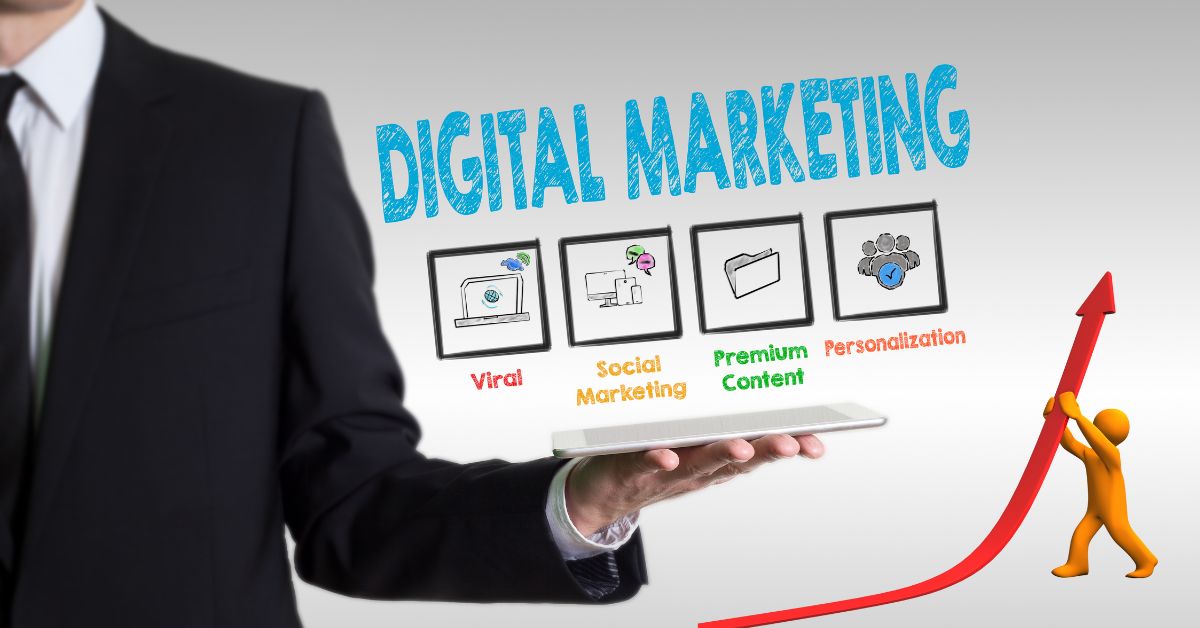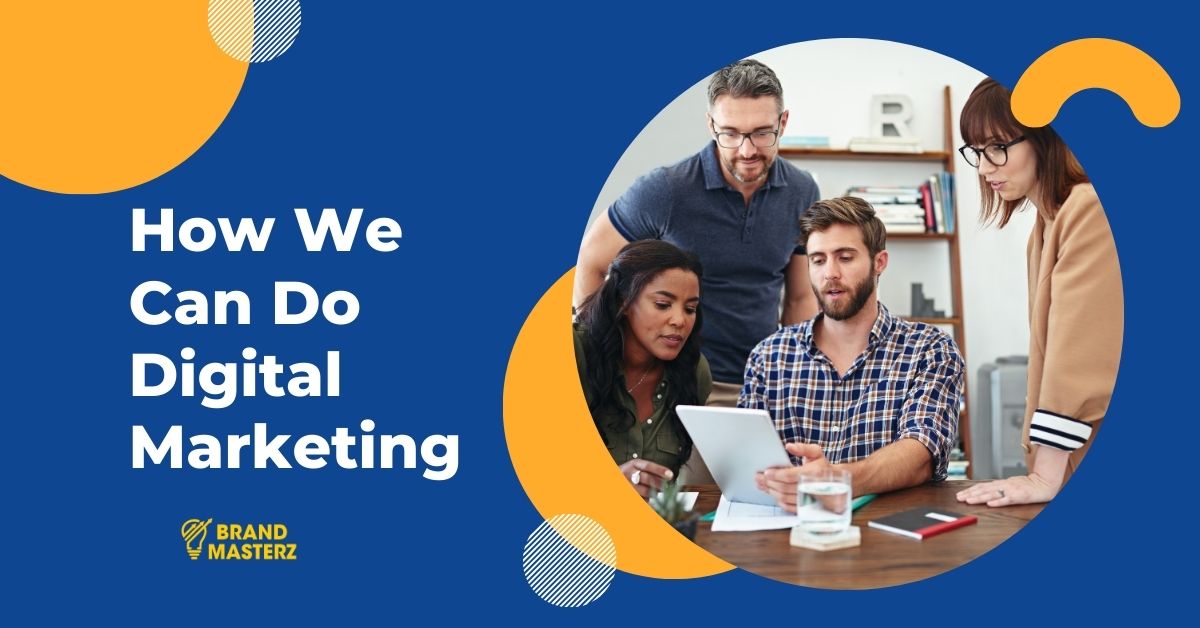Introduction
In today’s fast-paced digital world, businesses must embrace online marketing to stay competitive. Digital marketing encompasses a variety of strategies and platforms designed to reach and engage target audiences effectively. From search engines and social media to email campaigns and content marketing, businesses can leverage multiple channels to enhance their brand presence and drive sales.
Understanding the Basics of Digital Marketing

Digital marketing differs from traditional marketing by utilizing online channels to connect with consumers. It offers measurable results, higher engagement, and better targeting options compared to traditional advertising.
What is Digital Marketing?
Digital marketing refers to the use of digital channels such as websites, social media, search engines, and email to promote products or services. The primary goal is to reach potential customers online, build brand awareness, and drive sales.
Components of Digital Marketing
Digital marketing comprises several key components, including:
- Search Engine Optimization (SEO): Enhancing website visibility in search results.
- Social Media Marketing: Engaging audiences on platforms like Facebook, Instagram, and LinkedIn.
- Content Marketing: Creating valuable content such as blogs, videos, and infographics.
- Pay-Per-Click Advertising (PPC): Running paid ads on search engines and social media.
- Email Marketing: Sending targeted emails to nurture leads and retain customers.
Why Digital Marketing Matters Today
Consumers increasingly rely on digital platforms for information and purchases. Businesses of all sizes must adapt to this shift to remain competitive, improve customer engagement, and maximize revenue potential.
Key Digital Marketing Strategies for Success

To run successful digital marketing campaigns, businesses must implement effective strategies tailored to their goals.
Search Engine Optimization (SEO)
SEO enhances a website’s ranking on search engines, making it easier for potential customers to find your business organically. It involves keyword research, content optimization, and link building.
Pay-Per-Click Advertising (PPC)
PPC allows businesses to display ads on search engines and social media. Advertisers pay a fee each time a user clicks on their ad, ensuring targeted traffic and measurable results.
Social Media Marketing
Social media platforms like Facebook, Twitter, and Instagram can help businesses build brand awareness, engage with customers, and drive traffic. A well-planned social media strategy fosters community growth and customer loyalty.
Content Marketing
Providing valuable content through blogs, videos, and infographics helps businesses establish authority in their industry, attract audiences, and drive conversions.
Email Marketing
Businesses can nurture leads, promote offers, and keep customers engaged by sending personalized emails. Automated email sequences improve efficiency and effectiveness.
Tools and Technologies for Effective Digital Marketing
Leveraging the right tools can streamline marketing efforts and enhance performance.
Analytics Platforms
Tools like Google Analytics help track website traffic, user behavior, and conversion rates, providing insights for optimization.
Social Media Management Tools
Platforms like Hootsuite enable businesses to schedule posts, monitor engagement, and manage multiple social accounts efficiently.
SEO Tools
Tools such as SEMrush and Moz assist with keyword research, backlink analysis, and site optimization for improved rankings.
Email Marketing Platforms
Services like MailChimp allow businesses to create and automate email campaigns, segment audiences, and analyze engagement.
Content Creation Tools
Design tools like Canva and platforms like HubSpot aid in crafting compelling visuals and managing content marketing strategies.
Measuring the Success of Digital Marketing Campaigns
Tracking and analyzing performance is essential to refining marketing efforts and maximizing ROI.
Key Performance Indicators (KPIs)
Businesses should monitor metrics like click-through rate (CTR), conversion rate, and bounce rate to assess campaign effectiveness.
Analyzing Website Traffic
Understanding traffic sources, user behavior, and top-performing pages through analytics tools helps in improving website performance.
Evaluating ROI on Paid Campaigns
Measuring the cost per acquisition (CPA) and return on investment (ROI) for PPC and social media ads ensures efficient budget allocation.
Customer Feedback and Engagement
Monitoring reviews, comments, and direct feedback helps businesses refine their marketing approach and improve customer satisfaction.
Future Trends in Digital Marketing
Staying ahead of emerging trends is crucial for maintaining a competitive edge.
Growth of Artificial Intelligence (AI)
AI-driven tools enhance personalization, audience targeting, and predictive analytics, transforming digital marketing strategies.
Voice Search Optimization
With the rise of voice assistants, businesses must optimize their content for conversational and long-tail keyword searches.
Influencer Marketing Evolution
Collaborating with influencers is becoming an increasingly effective way to reach and engage audiences authentically.
Video Content Dominance
Video marketing continues to grow, with platforms like YouTube, TikTok, and Instagram Reels offering significant engagement opportunities.
Privacy and Data Security
Regulations such as GDPR require businesses to prioritize data protection and transparency in digital marketing efforts.
Conclusion
Digital marketing is a powerful tool that enables businesses to connect with their target audience, enhance brand visibility, and drive growth. By leveraging effective strategies, utilizing the right tools, and staying updated on trends, businesses can maximize their marketing potential. Now is the time to implement digital marketing strategies and take your business to new heights!

